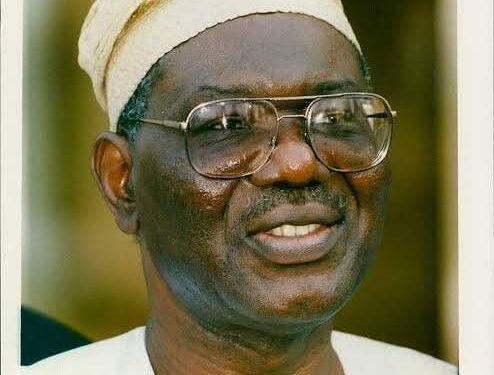1. Interim Leadership: Ernest Shonekan served as the Interim Head of State of Nigeria from August 26 to November 17, 1993, for a total of 83 days—the shortest tenure in Nigeria’s history.
2. Business Background: Before entering politics, Shonekan was a successful lawyer and businessman, serving as Chairman and Chief Executive of the United African Company (UAC) of Nigeria, one of the largest African-controlled companies.
3. Appointed by Babangida: His appointment as interim leader came after General Ibrahim Babangida annulled the June 12, 1993, presidential election and resigned under pressure.
4. Overthrown by Abacha: His government was overthrown in a bloodless coup by General Sani Abacha on November 17, 1993.
5. Legal Training: Shonekan studied law and was called to the bar in the United Kingdom before returning to Nigeria.
6. Education Abroad: He attended University of London and later Harvard Business School, where he further developed his leadership and management skills.
7. Technocrat in Government: Shonekan was considered a technocrat, not a traditional politician, and his interim government was intended to be a civilian-led transition to democracy.
8. Efforts Toward Democracy: During his short tenure, Shonekan tried to set a timetable for democratic transition, but he faced resistance from military and political elites.
9. Economic Policies: He attempted to implement economic reforms, including efforts to restore investor confidence and revive the economy amidst international sanctions.
10. National Reconciliation: His government emphasized national reconciliation following the political unrest from the annulled June 12 elections.
11. Criticism and Challenges: His administration was widely criticized for being ineffective, largely because it lacked real control over the military and governance apparatus.
12. Post-Government Role: After leaving office, Shonekan remained active in public affairs, especially as an elder statesman, and occasionally advised on national unity and democracy.
13. Founder of Nigerian Economic Summit Group (NESG): He was instrumental in the formation of NESG, a public-private dialogue platform focused on economic development.
14. Legacy of Peace: Despite his brief rule, Shonekan is remembered for his peaceful demeanor, and efforts to avoid further bloodshed during a tense political era.
15. Lifelong Impact: Ernest Shonekan’s leadership remains a symbol of the struggles for democratic governance in Nigeria’s post-military political history.



















































































 EduTimes Africa, a product of Education Times Africa, is a magazine publication that aims to lend its support to close the yawning gap in Africa's educational development.
EduTimes Africa, a product of Education Times Africa, is a magazine publication that aims to lend its support to close the yawning gap in Africa's educational development.